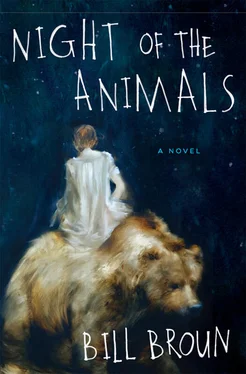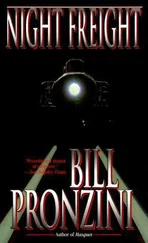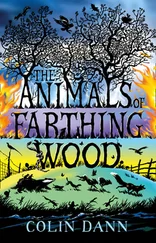It was unethical. It was illegal. It was unwise. But Astrid had reluctantly let Muezza stay in the flat. For all its standoffishness, the creature clearly adored both Cuthbert and her. It rubbed against their ankles, cuddled with them on the sofa, and did what it could to destroy Astrid’s £200 faux-Iranian rug. She knew, someday, the cat would need to go back to the zoo. But not today.
Muezza meowed at Cuthbert, almost provocatively.
“What is it? Use words, my brother. All the animals have stopped talking to me. Are you next? Am I not al-Khidr?”
The cat did not answer, at least not in words.
“Oh,” said Cuthbert. “Oh my brother, Muezza. Yow must talk. Or I’ve lost the Wonderments.”
Then they both fell asleep.
ASTRID HAD FIXED UP the room where her mother had stayed, and she gave Cuthbert a key to the flat. There was one rule: he wasn’t allowed to drink either alcohol or Flōt in the flat, under any circumstances.
But he was not, strictly speaking, quite sane, even though he didn’t hear many animals.
At age ninety-one, with his CoreModded organs updated by the special dispensation from the Crown, Cuthbert might have had another decade or two of life to look forward to if he could stay away from the Flōt. He was trying —very hard. He’d make it weeks sometimes, and only rarely need to go, to rest a few days, to the Whittington detox. He would vanish from Astrid’s flat for a week or two, then come back, always remorseful. But he always came back. In so many ways, he still believed that Astrid was his long-dead brother, Drystan, and Astrid didn’t have the heart to disabuse him of the notion.
In her own unobtrusive way, Astrid had learned much more about him in the last year — the abuse he and his sibling suffered at their father’s hands, his mother’s emotional neglect, the inexorable love the two boys received from their witchy gran. Above all, she discovered the deep break in Cuthbert’s being that occurred when his older brother drowned.
Earlier that summer, one morning, Cuthbert had asked “for that coin,” just to see it again.
“The souvenir bracteate? The one you gave me?”
“Yes.”
She snatched the Undley Bracteate from her pocket. She’d learned that boffins at the University of Leicester had decoded the ancient Anglo-Frisian inscription on the coin. It turned out that gagoga maga medu meant something along the lines of “Abracadabra — to you, kinsman, a drink of mead.” The researchers said it was actually the oldest sentence in English.
Cuthbert glanced at the bracteate for a moment, as if looking for something. There were the two brothers, Romulus and Remus, drinking from the teats of a she-wolf beneath the image of Constantine.
“I’ve not been as good to yow, Astrid, as yow’ve been to me. I canna stop missing my brother, Dryst, and I’m sorry for that.”
“No,” she said to him. “Never think that way. You’ve helped me — you brought me through the Death, you know?”
“I’ve done nothing,” he said. “It’s yow, Astrid. Yow’re the angel.”
In the year he was with her, all this knowledge helped her come to her own livable terms with what happened to her in second withdrawal, when she herself experienced a mystical encounter, and with what had happened since. She’d come to believe that being the Christ of Otters wasn’t a supernatural event; it was subnatural. It was a deeper part of being human.
AFTER HIS NAP, with Muezza at his toes, Cuthbert did something he’d pledged to himself that he’d never do. He snooped around the flat a bit and went where he knew he oughtn’t. He tiptoed into Astrid’s bedroom, looking behind himself continually, terrified she’d walk into the flat. It wasn’t the London Zoo, and there was no malice or prurience, but he hated himself for doing it. He felt compelled only out of a loving, cracked desire to know more about Astrid, whom he still associated with Drystan in a way that was helplessly immovable.
So a few minutes later, the erstwhile saint stood at his Messiah’s dresser, and he gazed at the small collection of things Astrid had put there. They struck him as sacred, even in their mundanity. There were the three fotolives, including the one with Astrid as a girl in a red teepee, and extra hairpins. There was a loose gangliatoxic round packed into its cylindrical bronze cartridge. There was a set of blue nuplastic swimming goggles with a precious white band. And there was a carefully folded DNA wipe with tiny number 5’s all over it.
Cuthbert unfolded and flattened the wipe out. It was dated from the day before yesterday.
He’d heard of these wipes, but he’d never seen or used one. He felt curious. It felt dry and papery, yet slightly sticky somehow, too. He suddenly recalled that, the day before yesterday, Astrid had gently wiped a bit of cake from the corner of his mouth at tea, using what he thought was a serviette. He hadn’t thought twice about it until now. She had looked oddly uncomfortable, he realized, not herself. The wipes were used to establish or prove familial genetic relationships, and this one indicated that the chance of a direct genetic connection between whoever had been swiped was roughly 5 percent. Cuthbert began to refold it, but he couldn’t keep the folds straight, and this — and the sudden dread that she would reject him — caused such anxiety, his hands shook and the refolding process failed again and again.
Such was the weakness of Cuthbert’s hearing, and his distracted state, that when a scrabbling at the flat’s front door began, and Astrid came in, he hadn’t a clue she was behind him.
“No,” she said. “Don’t look at that. Please, Cuddy.”
Cuthbert reeled back, utterly humiliated, his mouth gurning with shame.
“Oh blessed,” he gasped. “Oi’m a sorry yam-yam, I am. A’m sorry, a’m sorry. I’m so desperately sorry.” He held the DNA wipe up. It was balled and slightly torn. “I’ve just cocked up this important document of yours or whatnot, dear, the one with the fives all over. I just — I wanted — I was just curious. ”
“It’s all right,” she said, speaking with a shaky voice. “It doesn’t matter. But come out of there, you silly old rascal. Let’s have a nice tea now, shall we? Cuthbert? Cuthbert?”
But Cuthbert Handley had fallen down. His big, stupid, cardiomyopathic heart had trilled into a lethal ventricular arrhythmia.
“No!” Astrid cried. Without a moment’s pause, she blinked 999 over her corneas, and sent out emergency double-orange-freqs.
Cuthbert lay on the floor, looking up at the white ceiling, struggling to breathe, but not feeling any real pain. His mind began to travel.
He and Drystan had been so perfectly happy, so rarely happy, ambling on a different scalding day in the Wyre Forest. 1968. He remembered again a little detail from that afternoon, how Drystan quite inadvertently stepped on a young snake — an adder — and killed it — oh, they should have turned back then, Drystan had said. It was a complete accident, blameless — the snake had been totally hidden — but Cuthbert instantly saw Drystan’s recognition that he had tread upon a living forest creature. Drystan had jumped in horror, drawn himself back.
“Oh no,” Drystan had said. “I hurt something, Cuddy. Oh, no.”
The venomous adder hadn’t bitten him, but the thought of what he had done seemed to annihilate him.
“It’s only a snake,” Cuthbert had said. “Wasn’t you, Drystan. It’s like a cricket or something, that’s all. A snake is a snake. It’s not even a good animal.”
But no consolation seemed to touch Drystan.
Cuthbert remembered how he had run his finger down the cool scales of the snake, whose upper body had been given a grotesque crook. The string of black diamonds on its back were so perfect and ordered, like some optical art. But Drystan would not touch it. He looked devastated, clutching his cheeks and pulling his own ears.
Читать дальше












